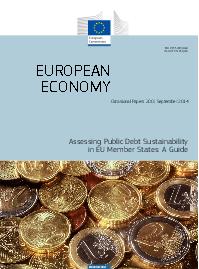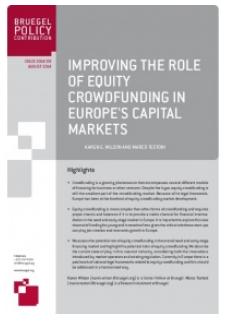OECD (2014) OECD Employment Outlook 2014 – Editorial, OECD Publishing. Both more and better jobs are needed for an inclusive recovery from the crisis More and better jobs are needed to lower unemployment and improve well-being Despite recent improvements, further progress in labour market conditions remains largely dependent upon a broader and sustained economic recovery. Although unemployment has declined in response to renewed job creation, large job gaps remain …Read More
OECD Employment Outlook 2014
OECD (2014) OECD Employment Outlook 2014, OECD Publishing. The 2014 edition of the OECD Employment Outlook reviews recent labour market trends and short-term prospects in OECD and key emerging economies. It zooms in on how the crisis has affected earnings, provides country comparisons of job quality, examines the causes and consequences of non-regular employment, and estimates the impact of qualifications and skills on labour market outcomes. How does GREECE …Read More
The Global Competitiveness Report 2014–2015
Schwab, K. (2014) “The Global Competitiveness Report 2014–2015“, World Economic Forum, 03 Σεπτεμβρίου. The Global Competitiveness Report 2014-2015 assesses the competitiveness landscape of 144 economies, providing insight into the drivers of their productivity and prosperity. The Report series remains the most comprehensive assessment of national competitiveness worldwide.
Assessing Public Debt Sustainability in EU Member States: A Guide
Berti, Κ. & Carone, G. (2014) “Assessing Public Debt Sustainability in EU Member States: A Guide“, European Economy, Occasional Papers, 200. Αύγουστος 2014: Βρυξέλλες. Analysing recent and prospective public debt developments and risks to debt sustainability is crucial for EA countries and the EU as a whole to be able to formulate appropriate policy responses. To this aim, the Commission services (Directorate General for Economic and Financial Affairs) conduct, …Read More
Fiscal Convergence in the European Union before the Crisis
Bertarelli, S., Censolo, R. & Colombo, C. (2014) “Fiscal Convergence in the European Union before the Crisis“, Contemporary Economic Policy, Volume 32, Issue 4, σσ. 784–801, Οκτώβριος 2014. This article investigates fiscal convergence attained by EU countries in the period 1991–2008, by employing β- and σ-convergence techniques complemented by a time series analysis. Overall our results highlight a distinctive convergence pattern in the European Union. Fiscal discipline leading to …Read More
Monthly Bulletin
European Central Bank (2014) “Monthly Bulletin“, ECB Eurosystem, Αύγουστος. Based on its regular economic and monetary analyses, the Governing Council decided at its meeting on 7 August 2014 to keep the key ECB interest rates unchanged. The available information remains consistent with the Governing Council’s assessment of a continued moderate and uneven recovery of the euro area economy, with low rates of inflation and subdued monetary and credit dynamics. …Read More
Improving the role of equity crowdfunding in Europe’s capital markets
Wilson, Ε. Κ. & Testoni, M. (2014) “Improving the role of equity crowdfunding in Europe’s capital markets“, Bruegel Organisation, 29 Αυγούστου. Crowdfunding is a growing phenomenon that encompasses several different models of financing for business or other ventures. Despite the hype, equity crowdfunding is still the smallest part of the crowdfunding market. Because of its legal framework, Europe has been at the forefront of equity crowdfunding market development. Equity …Read More
European Bond Market: Bubble of all Bubbles!
EconMatters (2014) “European Bond Market: Bubble of all Bubbles!“, Global Market Economics Matters, 27 Αυγούστου. European Bond Rush Right now investors in European Bonds are running over each other all in an effort to front run what the Big Banks have been begging the ECB to begin a bond buying program similar to the United States’ QE bond buying program. Tourism has its Limitations It is hilarious as European …Read More
How to jumpstart the Eurozone economy
Giavazzi, F. & Tabellini, G. (2014) “How to jumpstart the Eurozone economy“, VoxEU Organisation, 21 Αυγούστου. The stagnating Eurozone economy requires policy action. This column argues that EZ leaders should agree a coordinated 5% tax cut, extension of budget deficit targets by 3 or 4 years, and issuance of long-term public debt to be purchased by the ECB without sterilisation. The mantra is that once again it is up …Read More
European Economy, Evaluating Fiscal Policy – A Rule of Thumb
Carnot, N. (2014) “European Economy, Evaluating Fiscal Policy – A Rule of Thumb“, European Commission – Economic Papers 526, Αύγουστος. This paper introduces a simple rule for appraising the economic soundness of fiscal policies. It connects fiscal policy to a long-run debt objective, taken as an anchor, while arbitraging symmetrically between this debt objective and output stabilisation. The rule offers a benchmark to assess the evolution of primary expenditure, …Read More










